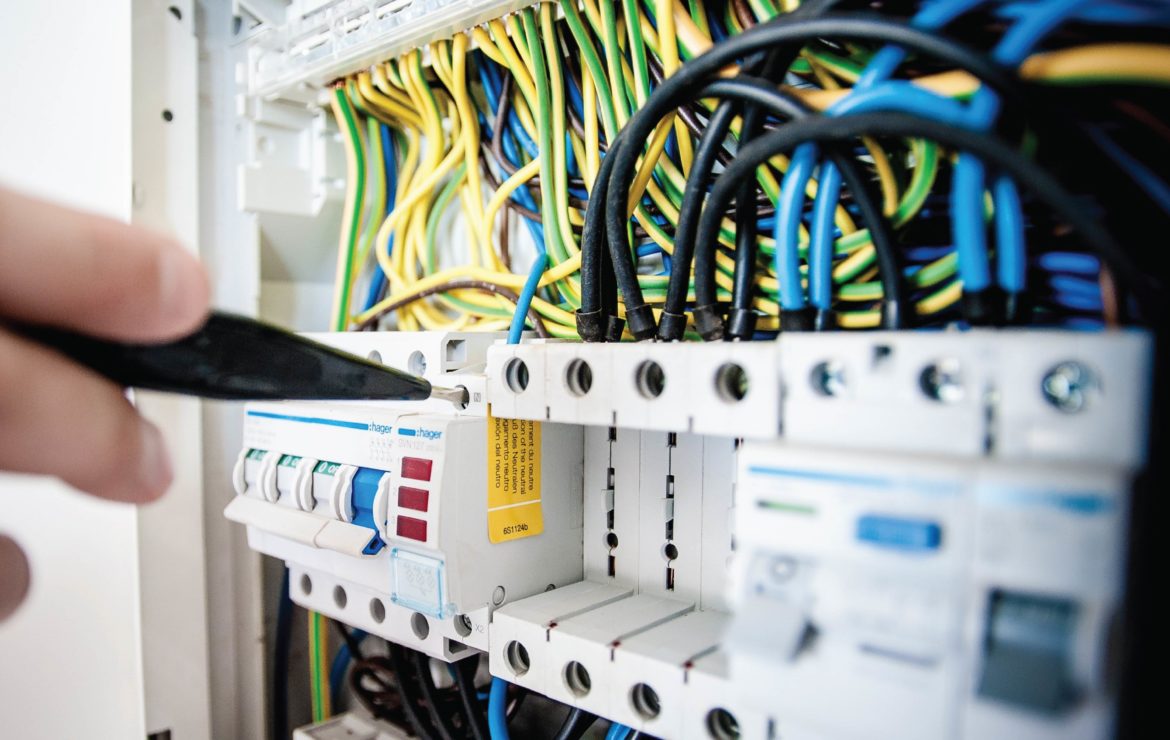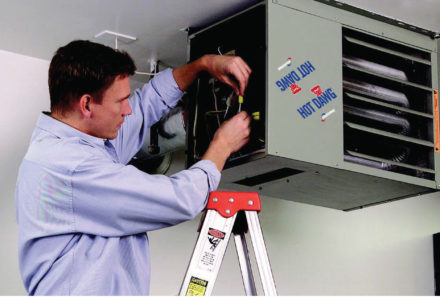
Be Aware of Electrical Safety for HVAC Equipment
May is National Electrical Safety Month, and Modine is encouraging everyone — from contractors to the end user — to refresh their knowledge of safety best practices when dealing with commercial HVAC equipment.
Electrical safety is especially important in manufacturing and commercial settings. According to EHS Today, thousands of workers are killed each year by not following simple electrical safety procedures:
OSHA estimates there are approximately 187 electrical-related fatalities a year. While electrical hazards are not the leading cause of on-the-job injuries and fatalities, they are disproportionately fatal and costly. For every 13 electrical injuries, one worker dies. According to the Consumer Product Safety Commission, each workplace death costs the U.S. economy $5 million.
HVAC safety procedures
Modine is dedicated to producing the highest-quality and safest commercial HVAC equipment, designed to minimize electrical hazards. We recommend that maintenance staff and contractors follow all recommended safety practices when installing or maintaining our equipment, including:
- Disconnect power supply before performing electrical work to prevent electrical shock and equipment damage.
- All appliances must be wired strictly in accordance with wiring diagram furnished with the appliance. Any wiring different from the wiring diagram could result in an electrical hazard.
- Ensure that the supply voltage to the equipment matches the rated voltage.
- When servicing or repairing HVAC equipment, use only factory-approved service replacement parts.
Signs of trouble
Be aware of the common signs of potential trouble with electrical components in and around HVAC equipment. Warning signs of the presence of electric hazards include:
- Tripped circuit breakers, blown fuses, and tripped ground fault circuit interrupters
- Wires, cords, connections, or junction boxes are hot to the touch
- Dim and flickering lights nearby
- Unusual sounds from electrical equipment or circuits, including sizzling and buzzing
- The smell of hot or burning insultation
To protect HVAC equipment, maintenance staff should verify all electrical connections are tight and check all electrical components for signs of wear. This can include:
- Loose connections at termination of wires or cables
- Discoloration at wire terminations/connections
- Pitted or melted contacts of electrical components
In addition to potentially posing safety hazards, problems with electrical connections and components on HVAC equipment can reduce its usable lifespan through excessive component amp draw.








